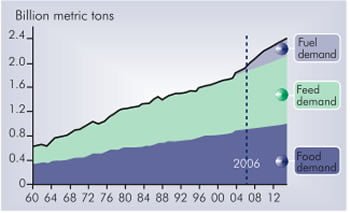
There are 6.7 billion people living on the planet and this number is expected to exceed 9 billion by 2050. The need for food for people, feed for animals and fuel for energy, such as for domestic heating, motor transport and industry is increasing. This means the world needs to produce more crops to meet the world’s increasing demand:
- Global demand for cereals is likely to increase by a further 40% and global demand for meat by 60% in the next 40 years.
- Food production from existing agricultural land will need to double by 2050 to meet this demand.
- It is necessary to balance the demands of people and wild spaces by growing more on the same amount of agricultural land.
- Society needs to consider how to preserve biodiversity for the long-term good of the world whilst feeding its people.
The use of technology can help to provide answers to these problems.

Today the world’s reserves of food, especially wheat and grain, are at their lowest point for 40-50 years in relation to the global population. Overall production is not meeting the increased demand. The increased demand and shortage of supply has led to rising food prices. Research and technology is essential to develop new crops and to increase crop yields. Technology is the application of science to create new products.
Syngenta’s focus is on delivering sustainable agriculture through innovative research and technology. Syngenta is a leader in providing products to protect crops (herbicides, insecticides, fungicides) and is the third largest producer of seeds, for example, corn, wheat, soya, barley and rice. It had sales over $9.25 billion (around £4.6 billion) in 2007. Syngenta employs around 21,000 people in over 90 countries. Its response to the increasing demand for food, feed and fuel on a global scale has been to research and develop:
- agricultural products to improve crop yields for farmers. This affects crops for food, feed and fuel
- new seeds to grow better, pest-resistant, high yielding crops
Syngenta’s product portfolio contains a range of different categories, for example, crop protection, seeds, professional products for sports venues and flowers.
Crop protection products protect agricultural yield and improve quality by controlling weeds and diseases. Syngenta also breeds crops which have higher yields.
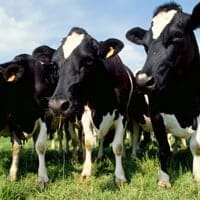
This case study looks at how Syngenta, one of the world”s leading plant science businesses, is meeting this dual challenge of increasing crop yield and producing alternative fuels.
The SLEPT Model
All businesses need to be aware of changes in their external environment in order to remain competitive in their markets.
Global businesses like Syngenta must understand the impact of both global and local changes. They must plan and develop strategies that will enable them to respond positively to these external factors.

Businesses use a SLEPT model to analyse their environments. A SLEPT analysis helps a business to identify changes in five key areas.
There are several important factors surrounding the problem of feeding and fuelling the world. Syngenta’s technologies support farmers by providing products to improve quality and increase yield.
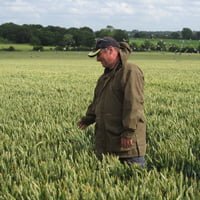
Syngenta’s research also helps to provide alternative energy supplies through crop-based biofuels. Much of the world’s existing fuel comes from coal and oil. Supplies of these non-renewable resources are running out. These traditional fuels create an unacceptable carbon footprint and contribute to global warming. Biofuels are friendlier to our environment.
In some of the world’s largest countries like Brazil and the United States of America, cars are using some biofuels created from crops. Ethanol is a biofuel used by cars as a petrol replacement. Syngenta is one of the companies creating plants used in producing biofuel.
Syngenta’s biofuels strategy involves collaborating with farmers and fuel refiners across the world to improve the yields of biofuel crops. It contributes by developing cellulosic ethanol technology. This is a method of breaking down waste plant materials using enzymes to produce ethanol.
Using a SLEPT model helps a business take advantage of opportunities and be aware of potential threats to the business in both the short and long term.
Social and legal factors
Social factors
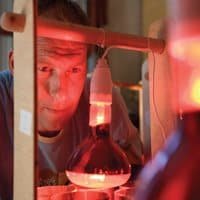
Social factors relate to changes in the behaviour, tastes and lifestyles of communities on a local, national and international scale. Social factors Syngenta needs to take account of include:
- growth of the global population. By 2020 about 93% of the increase in world population will occur in the developing world
- changing diets – for example, more people worldwide eating meat
- competition for land for growing crops
- the rapid growth of the Chinese and Indian economies requiring large increases in food, feed and fuel
- rising demand for more fuel in developed countries
Consumers drive the demand for food, feed and fuel. People across the world are changing their diets, for example, in Asia by eating more meat. However, 8 kilograms of plant food (e.g. corn or soya) fed to cattle will result in only 1 kilogram of beef. Farmers must increase their crop yields for feedstock to satisfy this increased demand for meat.
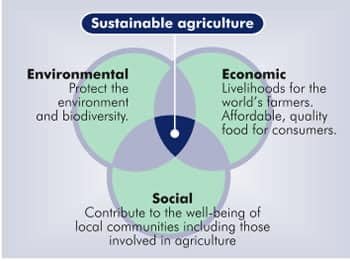
Syngenta’s aim is to help produce crops that provide affordable quality food. These crops need to deliver their high yields reliably, ensuring that farmers get a good return on investment from buying Syngenta’s technology. This benefits local communities and protects the environment and biodiversity. Syngenta’s scientists are developing plants that are both more water-efficient and produce a greater crop yield.
Another social change is the increasing demand for water. Agriculture is the biggest user of water and as the world”s population increases, so does the demand for water in agriculture, industry and domestic homes.
Legal factors
Legal factors relate to new laws or directives governing how businesses behave. This can be in relation to other businesses, customers or the environment. For example, it is essential that all agricultural products are used safely. Syngenta seeks to meet and exceed the requirements of local and international laws for all the countries within which it operates.
Syngenta also seeks to ensure the safety of wildlife and the environment. For example, it has created AXIAL, a herbicide for cereal crops. Syngenta has developed the product so that it leaves no harmful residues in the soil after use. This meets UK environmental laws.
Product protection
Syngenta registered the trademark for AXIAL in 2005 and also owns patents covering this technology. This gave it legal protection against copying by competitors. The trademark gave Syngenta a considerable advantage over rivals as it allowed it to be the sole producer of AXIAL for many years. This is important as it costs on average over $200 million (around £100 million) to invent and register a new chemical for crop protection use.
Similarly, Syngenta developed and registered AVICTA, a seed treatment for nematodes. Nematodes are microscopic worms that invade plant roots. In the USA they cause damage to cotton plants worth over $400 million (around £200 million) a year. Syngenta carried out field-testing to ensure that AVICTA complied with the USA’s strict health and safety laws.
Economic and political factors
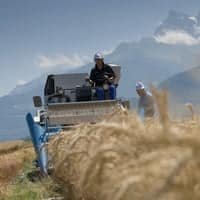
Economic factors relate to changes such as costs and prices of goods, interest rates, wage rates, exchange rates and the rate of inflation. These all affect the ability of businesses to generate profits and need close monitoring.
Economic factors
A number of economic factors have an impact on Syngenta and its work, for example:
- the increasing wealth of parts of the population means changes in lifestyle and diet
- the rising cost of food and feedstocks causes hardship in developing countries
- oil price increases mean fuel input costs are higher
- farmers growing crops that are in demand and giving a good financial return brings wealth to rural communities
The demand for more crops means farmers need to use land more effectively. With these factors in mind, Syngenta has developed products to:
- ensure crops are healthy and free from disease. If farmers did not use crop protection technologies, 40% of food would be lost to pests, resulting in price increases to consumers
- give maximum return on the farmers’ investment
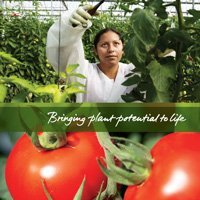
Production of many agricultural crops for fuel has increased in Asia, South America and the USA. In other countries like Australia, drought has reduced crop yield. This puts the market price up. Many of these crops face a seasonal cycle. For example, 70% of sales of corn seed in the United States occur in the first half of the year.
Political factors
Political factors affect all businesses. Agriculture is a global industry, important to all governments. Syngenta helps to support three major political themes:
- Food security: The United Nations defines food security as when all people, at all times, have access to sufficient, safe and nutritious food to meet their dietary needs and food preferences for an active and healthy life. The UN”s Special Programme for Food Security aims to achieve the goal of halving the number of hungry in the world by 2015. Currently there are 852 million food insecure people in the world. Syngenta supports drives to increase food security by improving access to technologies that are safe, reliable and affordable.
- Energy security. This refers to countries wanting to be less dependent for their fuel on other countries. By investing in biofuel technologies, Syngenta is helping them to provide alternatives to oil and coal.
- Climate change. Using biofuels helps to reduce greenhouse gas emissions. The European Union has a target of replacing over 5% of all transportation fuel with renewable fuels by 2010. Creating high yields on existing farmland reduces the drive to cut down forests for new agricultural land. Loss of forests has big impacts on wildlife and also on climate.
Syngenta also plays an important role in creating networks of groups working to resolve local and global issues related to fuel and food. For instance, Syngenta is partnering with the Royal Society of Chemistry to set up the Pan-Africa Chemistry Network. This brings together universities, schools, scientists, teachers and students in Africa to share ideas and resources in conferences and workshops.
Technological factors

Syngenta is a science and technology leader:
- Its products increase the output from existing farmland.
- It develops new products for sustainable agriculture and integrated pest management programmes.
- It helps to shape new agricultural technologies that can transform lives.
Biodiversity
Syngenta works in partnership with governments and environmental organisations to create products that protect biodiversity and conserve soil and water. Products that remove weeds without farmers ploughing the fields help to reduce soil erosion. This leads to improved soil quality and helps to retain water. It also improves biodiversity, which contributes to increasing bird numbers.
Biofuels
Syngenta has responded to technical advances in other areas. For example, in order to reduce CO2 emissions, car manufacturers are developing new engine technology in order to use alternative fuels.
Syngenta’s development of biofuels works in harmony with this. It is now working to increase the efficiency of ethanol technology to provide enough biofuels for future generations. For example, Syngenta is helping Brazilian sugarcane growers to be more efficient in growing crops for fuel production. ‘Fuel farming’ is already possible with a number of different crops, such as corn in the USA, sugar cane in South America and soya in Asia.
New technologies
Syngenta is developing Amylase technology in corn. Amylase increases the efficiency of ethanol production from corn. Research indicates that it could also have broader benefits including energy cost savings and reduced water usage without an equivalent increase in corn acreage.
Conclusion
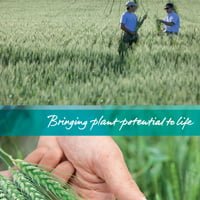
As the world’s population grows and living standards improve, society needs more fuel and more food.
A plant science business like Syngenta needs to understand the SLEPT factors in its environment. This helps it target its scientific research and technological development to:
- increase crop output
- improve yield to enable farmers to provide the increased demand the world needs
- create biofuels to replace existing fuels
- reduce society’s impact on biodiversity
Syngenta is a leading supporter of food, feed and biofuel production. It plays a crucial role in helping to address the two global challenges of food security and energy security without the need to devote more land to agriculture.
